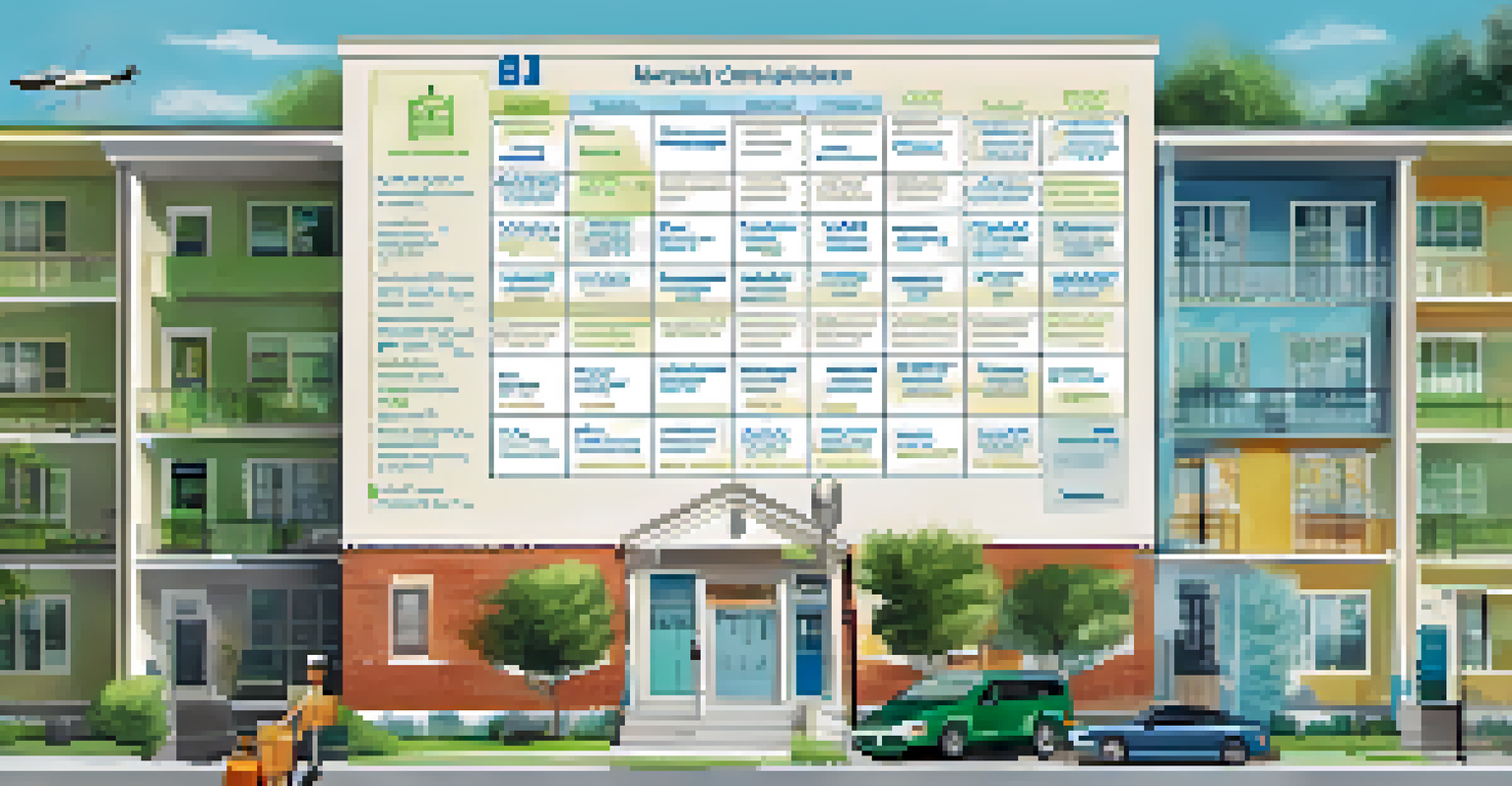Understanding HOA Disciplinary Actions and Consequences

What is an HOA and Its Purpose in Communities?
Homeowners Associations (HOAs) play a key role in maintaining community standards. They ensure that neighborhoods are safe, aesthetically pleasing, and valuable for residents. By establishing rules and regulations, HOAs promote a sense of community and shared responsibility among homeowners.
Community is a place where the connections between people create a sense of belonging and responsibility.
These associations often manage common areas, enforce community guidelines, and oversee maintenance tasks. Think of an HOA as a referee in a game, keeping the play fair and ensuring everyone adheres to the same rules. This structure helps to maintain property values and can even enhance the overall living experience.
However, with these benefits come responsibilities, and when homeowners fail to follow the established guidelines, disciplinary actions may be necessary to uphold community standards.
Common Reasons for HOA Disciplinary Actions
HOAs enforce rules to ensure a harmonious living environment, and violations can lead to disciplinary actions. Some common reasons for these actions include neglecting property maintenance, making unauthorized modifications to homes, or failing to pay dues. Each of these infractions can disrupt the community's aesthetic and financial stability.

For example, imagine a homeowner painting their house a bright neon color without permission; this could clash with the community's overall look and feel. Such violations not only impact the offender but can also lower property values for neighbors. Therefore, HOAs take these rules seriously to maintain order.
HOAs Maintain Community Standards
Homeowners Associations play a crucial role in ensuring neighborhoods remain safe, appealing, and valuable through established rules and regulations.
Understanding the specific rules within your HOA is crucial. Homeowners should review the bylaws and guidelines to avoid unintentional violations that could lead to disciplinary measures.
The Disciplinary Process in HOAs Explained
When a violation occurs, HOAs typically follow a structured disciplinary process. This process usually begins with a warning or notification to the homeowner regarding the infraction. This initial communication aims to inform homeowners of the issue and provide an opportunity for correction before further actions are taken.
The strength of the team is each individual member. The strength of each member is the team.
If the violation persists, the HOA might schedule a hearing where the homeowner can present their case. This is similar to a court hearing but on a much smaller scale, allowing for dialogue and understanding. The goal here is to resolve conflicts amicably while still upholding community standards.
Ultimately, if a resolution is not reached, the HOA may impose fines or other penalties. Homeowners should be aware of this process to navigate it effectively and respond appropriately to any concerns raised.
Potential Consequences of Violating HOA Rules
Violating HOA rules can lead to various consequences, primarily financial penalties. Fines can vary widely based on the nature and severity of the violation, and excessive fines can add up quickly, causing significant stress for homeowners. Imagine receiving a hefty bill for failing to mow your lawn on time; this is a reality for many individuals living under an HOA.
In more severe cases, persistent violations can lead to legal actions, including liens against the property. This means that unpaid fines could result in the HOA claiming a legal right to your home until debts are settled. Such outcomes can be daunting and often serve as a wake-up call for homeowners to adhere to community guidelines.
Consequences of HOA Rule Violations
Violating HOA rules can lead to financial penalties and even legal actions, highlighting the importance of adhering to community guidelines.
Additionally, repeated issues could lead to a strained relationship with the HOA, making future interactions more challenging. It’s essential for homeowners to understand these consequences to foster a cooperative and positive living environment.
How to Address HOA Disciplinary Actions Effectively
If you find yourself facing disciplinary actions from your HOA, addressing the situation promptly and professionally is crucial. Start by reviewing the specific rules and regulations you are accused of violating. This will help you understand the context of the issue and prepare your response effectively.
Next, communicate openly with the HOA. Engage in a constructive dialogue, explaining your perspective and expressing your willingness to comply with community standards. Remember, approaching the situation with a positive attitude can go a long way in resolving misunderstandings.
Additionally, consider seeking advice from neighbors or legal professionals if needed. They can offer valuable insights on how to navigate the situation while ensuring your rights are protected.
The Importance of Community Involvement and Feedback
One way to better understand and potentially influence HOA rules is through active community involvement. Attending HOA meetings and participating in discussions not only keeps you informed but also allows you to voice your opinions on existing policies. This engagement fosters a sense of collaboration and can help shape a more favorable community environment.
Moreover, providing constructive feedback to the HOA can lead to changes in rules that better reflect the community's needs. Think of it as contributing to a group project at school; your input matters and can enhance the final outcome for everyone involved.
Engagement Enhances Community Life
Active participation in HOA meetings and open communication fosters collaboration and can lead to improvements in community policies.
Remember, HOAs are composed of fellow community members who may appreciate your insights. By working together, residents can create a more harmonious living space that benefits everyone.
Conclusion: Navigating HOA Disciplinary Actions with Confidence
Understanding HOA disciplinary actions and their consequences is vital for every homeowner. By familiarizing yourself with the rules, engaging with the community, and addressing issues promptly, you can foster a positive living experience. It's all about maintaining that delicate balance between individual freedom and community standards.
Remember, the goal of an HOA is to enhance the living environment for all residents, and following the guidelines helps achieve that. When everyone plays by the same rules, it contributes to a sense of belonging and pride in the community.

So, approach your HOA with confidence, and remember that open communication and community involvement can go a long way in ensuring a harmonious neighborhood.